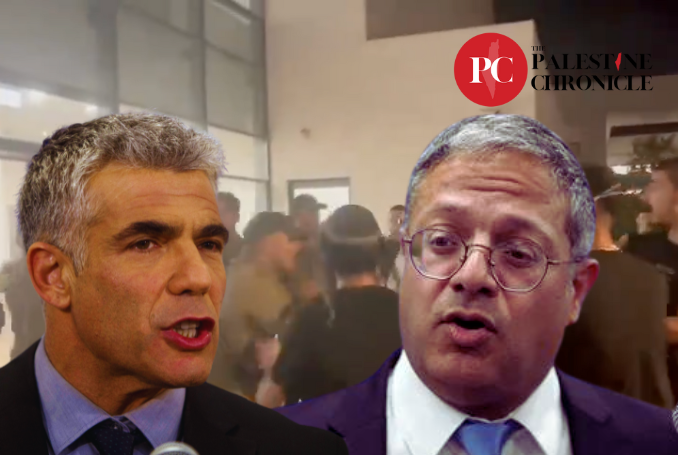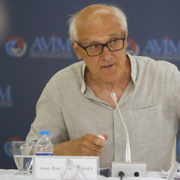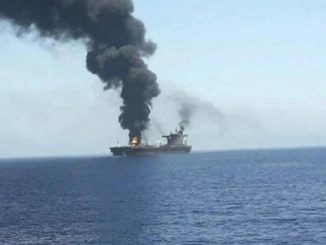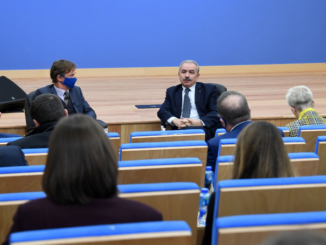
By Jeremy Salt
The Middle East has been brought to the very edge of a final existential confrontation with Israel that will determine the shape of the region for the next century.
The signs are unmistakable. A society at war with itself as well as war with its enemies.
Government ministers abusing each other. Fascist demonstrators trying to break into military bases in support of soldiers accused of rape and torture. Soldiers fighting soldiers trying to arrest them. Settlers fighting with soldiers. Rabbis at religious seminaries telling their students to reject conscription. Mass murder of Palestinian men, women and children, supported by the vast mass of the public.
Beyond its borders, a colonial settler state that is at war with most of the world, a state responsible for its own undoing that blames everyone else, a regime that has just murdered the man representing the Palestinians in ceasefire negotiations, a regime that is flaming out.
When the Zionists came to Palestine they had a choice: cooperation or conquest. What they could have had they didn’t want. They chose conquest. They would crush the indigenous people until they could resist no longer. Unable and unwilling to make peace, Israel has set loose the wheels of its own destruction.
Ronan Bergman’s book, ‘Rise Up and Kill First. The Secret History of Israel’s Targeted Assassinations’ is a lexicon of murder by any and all means of anyone who stood in Israel’s way. In fact, many of the victims were searching for a peaceful solution, but that made them more dangerous because it was land Israel wanted, all of it, not peace. Shaikh Ahmad Yassin was one such man and Ismail Haniyeh another.
For individual killings, research institutes were given the job of devising weapons beyond the gun and the knife. These were ruthless, merciless murders, the victims including wives and children as well as the inhabitants of apartment blocks targeted for bombing.
Bergman from time to time highlights questionable concern for non-combatant civilian life but almost always the eradication of an enemy came first.
In the century since the Zionists launched their war, has Israel eradicated its enemies? Has it brought peace? Has it made Israel a safer place for Jews? Has it consolidated Israel’s place in the community of Middle Eastern states? Is it more secure? Has it enriched Israel’s status in the eyes of the world?
The answer to all these questions is ‘no’. By destroying others, Israel has finally brought on its own existential crisis. It has deliberately wiped out all peace options and left its enemies no option but to remove the Zionist state from the landscape of the Middle East.
Another very different state will have to take its place.
Israel is hated around the world. This is not anti-semitism but the consequence of Israel’s evil deeds over the last century. It has made itself hated. No one else did it. It has long since been the benchmark for racist discrimination and remorseless cruelty. It is a genocidal state, born of a genocidal ideology.
Its only ‘friends’ are states with the same genocidal background. But real friendship is out of place when it comes to Israel. It is a false friendship, born of the money power of Israeli lobbies to push politicians around or buy them. This has reached the stage where they don’t even have the guts to stand up and condemn the genocide being committed before their eyes.
But their political support for Israel doesn’t mean they like or really identify with its values, as they keep saying. They are fully aware of the crimes it is committing, but lining up with the US is more important than taking a moral stand against racism, apartheid, occupation and mass murder.
The US is Israel’s sole lifeline. Without its military, economic and political support, which flows on through other governments, it could not survive. It would either collapse or it would be forced to make a peace based on the end of Israel as a Zionist state, or fight to the end and take everyone else down with it. The ‘Samson option’ is the weapon used to alarm its friends. ‘Don’t push us too far’ is how it goes. ‘You never know what we might do.’ Of course, using nuclear weapons is what it might do.
Israel was born of deceit and duplicity by Britain and its Zionist proteges. The Balfour Declaration had promised a “national home for the Jewish people,” it being understood that “nothing shall be done that shall prejudice the civil and religious rights of existing non-Jewish communities in Palestine.”
At the time, the negatively described “non-Jewish communities” constituted 90 percent of the population.
The chicanery of the British was evident in their pledges to ‘the Arabs’, as represented by King Hussein of the Hijaz and his son, the Emir Faisal. Hussein expected the proclamation of a large Arab state extending from the eastern Mediterranean across to Iran and down to the Persian Gulf but in his correspondence with Hussein, Sir Henry McMahon, negotiating on behalf of the British government, referred only to Arab independence, not one Arab state or states.
The wording was deliberately vague, designed to deceive Hussein, and it worked. On the basis of what he thought he had been promised, Hussein raised the standard of Arab revolt against the Ottoman Turks.
In their correspondence, McMahon specifically excluded certain territories from the area set aside for Arab independence. Lying west of Damascus, Homs, Hama, and Aleppo these territories “cannot be said to be purely Arab.”
Taking the mistaken view that only Muslims could be called Arabs, McMahon was referring to the Christian communities living largely near or on the Syrian coast.
As Palestine was south of Damascus, not to the west, as Britain had not specifically excluded it from the area of Arab independence, Hussein was entitled to believe that it, too, would fall under Arab rule.
Further perfidy was evident in the correspondence between the Emir Faisal, Hussein’s son, and the Zionist leader Chaim Weizmann. On the agreed basis that nothing would be done to harm Arab interests, King Hussein said Jewish settlers would be welcome in Palestine “as brethren” working for the common good.
Weizmann repeated to Faisal that the Zionist settlers had no intention of establishing their own government. Their agreement (January 3, 1919) was written in English and translated into Arabic by T.E. Lawrence.
As a British government agent, who was showing sympathy for the Zionists as well as ‘the Arabs, ’ Lawrence was playing a triple game. How much Faisal really understood from his translation remains unclear but he signed it nevertheless.
The agreement allowed for Jewish immigration into Palestine on a large scale as long as the rights of Arab “tenants and farmers” (a phrase that smacks of Zionist wording) were protected and Muslim control over Muslim holy places was maintained.
The Zionist settlers would assist the Palestinian Arabs and contribute to the development of the future Arab state. Faisal accepted the terms of the Balfour Declaration, without knowing what the British really intended.
The agreement was negotiated over the heads of the Palestinians so what they would have wanted remains a moot point. Very likely they would have rejected Zionist settlement altogether.
The agreement was presented to the Paris Peace Conference by the Zionist delegation but without the critical caveat that Faisal had added. Provided the Arabs were given their independence, he wrote in this caveat, “I concur in this agreement but if there is the slightest modification or departure (from the terms of Arab independence he had been led to believe had been accepted by the British Foreign Office) I shall not be bound by a single word of the present agreement.”
Not knowing English, his advisers were surprised that he had signed on to an agreement reached by two foreigners, Lawrence and Weizmann, but he reassured them that his signature was conditional on the acceptance by the British government of Arab independence within boundaries that both he and his father took for granted included Palestine.
McMahon had not specifically excluded Palestine in his agreement with Hussein because Britain intended to keep Palestine and McMahon knew that without Palestine, Hussein would never agree to launch an Arab revolt against the Turks.
It was not long before Faisal realized he was being duped. After the “radical Zionists” – his words – made their pitch at the peace conference he told a member of the US delegation that the Zionist settlers were very different from Jews already in Palestine, “with whom we have been able to live and cooperate on friendly terms.”
Almost without exception, the new colonists “have come in an imperialist spirit. In a later interview, Faisal said that if the Zionists wanted to establish a state in Palestine, “I foresee very serious dangers … it is to be feared that there will be a conflict between them and the other races.”
His fears have been borne out but Faisal could not possibly have imagined the level of death and destruction the Zionists have brought to Palestine.
The Middle East has been brought to the very edge of a final existential confrontation with Israel that will determine the shape of the region for the next century.

– Jeremy Salt taught at the University of Melbourne, at Bosporus University in Istanbul and Bilkent University in Ankara for many years, specializing in the modern history of the Middle East. Among his recent publications is his 2008 book, The Unmaking of the Middle East. A History of Western Disorder in Arab Lands (University of California Press) and The Last Ottoman Wars. The Human Cost 1877-1923 (University of Utah Press, 2019). He contributed this article to The Palestine Chronicle.








The Fourth Reich.
Excellent article.